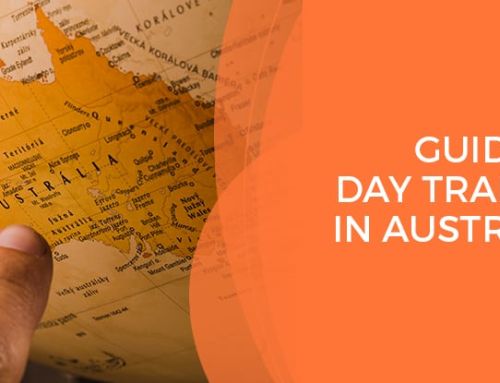Benefits of Trading as a Business
Learning to trade vs starting a small business, which is the best option? Well, it depends on you, but we believe there are some real benefits of learning to trade.
Let’s look at some of these benefits.
Day Trading is 100% Online
There are SOME businesses that can be run completely online, or mostly online. Day Trading is 100% online and can be done from absolutely anywhere with just a computer/laptop. internet connection, and a trading platform.
Less Administration, Less Paperwork
Trading as a business takes almost no paperwork or admin. All that is required is opening a trading account and tracking progress in a trading journal. This is a large part of what people like about the trader’s lifestyle.
Running a traditional business involves LOADS of paperwork and administration. from accounting to employee files, inventory, insurance… The list goes on and on and on…

Start Up Costs – Trading vs Small Business
The startup costs for day trading futures is considerably lower than the startup capital needed to open a small business. Let’s compare the startup costs of each.
Startup Costs for Day Trading
Trading full time as a business requires the costs of education and equipment. The equipment required include a trading computer, and a trading platform. You will also need some capital to put into an account and trade with.
For More Information Read: How Much Money Do You Need to Day Trade?
Startup Costs for a Small Business
Office Space
While some small businesses can be run from home, most small businesses need a brick and mortar location. You will need bond upfront if you intend on renting a space for your office/store.
Acquiring Employees
Not only do you need money set aside to pay your employees, but you also need the funds to acquire them. This includes advertising costs for positions available.
Equipment
Most small businesses will require equipment in order to provide a good or service. Tradies need tools, restaurants need food preparation equipment, cafes need coffee machines. Other equipment or tools include computers and software.
Inventory/Materials
If your small business builds something and sells the end product you will need to have the upfront funds for the materials. This could range from making household items to building houses, making food, or just selling an inventory of items.
Running Costs – Trading vs Small Business
When comparing day trading to running a traditional small business, one key difference lies in overheads. While small businesses often face ongoing costs like rent, staff wages, inventory, and utilities, day trading has relatively low running expenses. Let’s break down what those costs typically look like for each.
Running Costs for Day Trading as a Business
The running costs for day trading as a business are low, let’s look at those costs.
Funds to Trade
A day trader will need to have funds in a trading account that can be used to place trade to see a profit. This is more of a carrying costs than a running costs.
Transaction Fees
Each trade that is placed has transaction fees attached. While small these are still a running cost involved with day trading as a business.
Electricity and Internet
A day trader will need to have electricity to run their computer and a reliable internet connection to access the markets.
Trading Indicators / Trading Rooms
Trading indicators and Live Trading Rooms are useful tools that a trader may choose to use, but they ate optional costs.
Running Costs for a Traditional Business
Rental Costs
Small businesses need a store front, while some businesses are from home, most need an office/shop. A location is either purchased or in most cases, rented out.
Utilities
Running a business in a designated location brings costs like electrical, water, council rates, internet.
Staff Wages and Super
For most businesses the biggest expense is staff wages. Staff need to be paid a living wage as well as Super. Even a small number of employees is a large expense.
Equipment Maintenance
Equipment breaks, sometimes at the most inopportune times. Repairing or replacing equipment is a normal part of business.
Software
Most businesses run at least some software. This can include operating system, office suites, accounting, CRM, sales, marketing software etc.
Inventory
Any business that has some form of stock inventory will have a ‘carrying cost’. This is the cost of buying stock that needed on hand at all times. This is a continued expense for the life of the business.
Marketing and SEO
Marketing and Search Engine Optimisation are often needed to grow a business. Both of these are significant expenses.
Comparing Risk – Trading vs Small Business
Every business venture comes with risk, but the nature of that risk can vary greatly. Day trading and small business ownership both carry the potential for financial loss, but in different ways. Before diving into either, it’s important to understand how risk plays out in each scenario.
Risks for Day Trading as a Business
When trading you run the risk of losing some, or all your invested funds. Trading risk management in an important part of trading strategy, to reduce these losses.
Risks for a Traditional Business
- Low demand for product
- Recessions
- Pandemics
- Damage to store/location
- Loss or damage to inventory
- Health
- Weather
- Stock shortages
- Staffing issues
- Business liabilities
Comparing Benefits – Trading vs Small Business
While both trading and running a small business offer flexibility and the potential for growth, day trading has unique advantages. With minimal overheads, no staff to manage, and the ability to operate from anywhere, trading can offer a leaner path to profitability. Unlike traditional businesses, traders aren’t limited by location or inventory — your only tools are a screen and a strategy.
When done well, the earning potential can rival or exceed many small business ventures. If you’re curious about what’s financially possible, take a look at how much day traders make.
Benefits of Day Trading as a Business
- Be your own boss
- Flexible hours
- Fewer hours
- No staff
- Recession proof
- Pandemic proof
- No customers
- No complaints
- No sales or marketing
- No set location
- No commute time
- No meetings
Benefits of Starting a Small Business
- Be your own boss
- Control how your business is run
- Set your own hours (to a degree)
Day trading provides what running a small business can’t. With the potential to provide a lifestyle, and financial freedom.
You can join us for our next free trading class to learn more.
Want to learn more? Join our top coaches and mentors in one of our trading courses or commit to a trading course bundle today. IDTA supports traders with all levels of experience!


